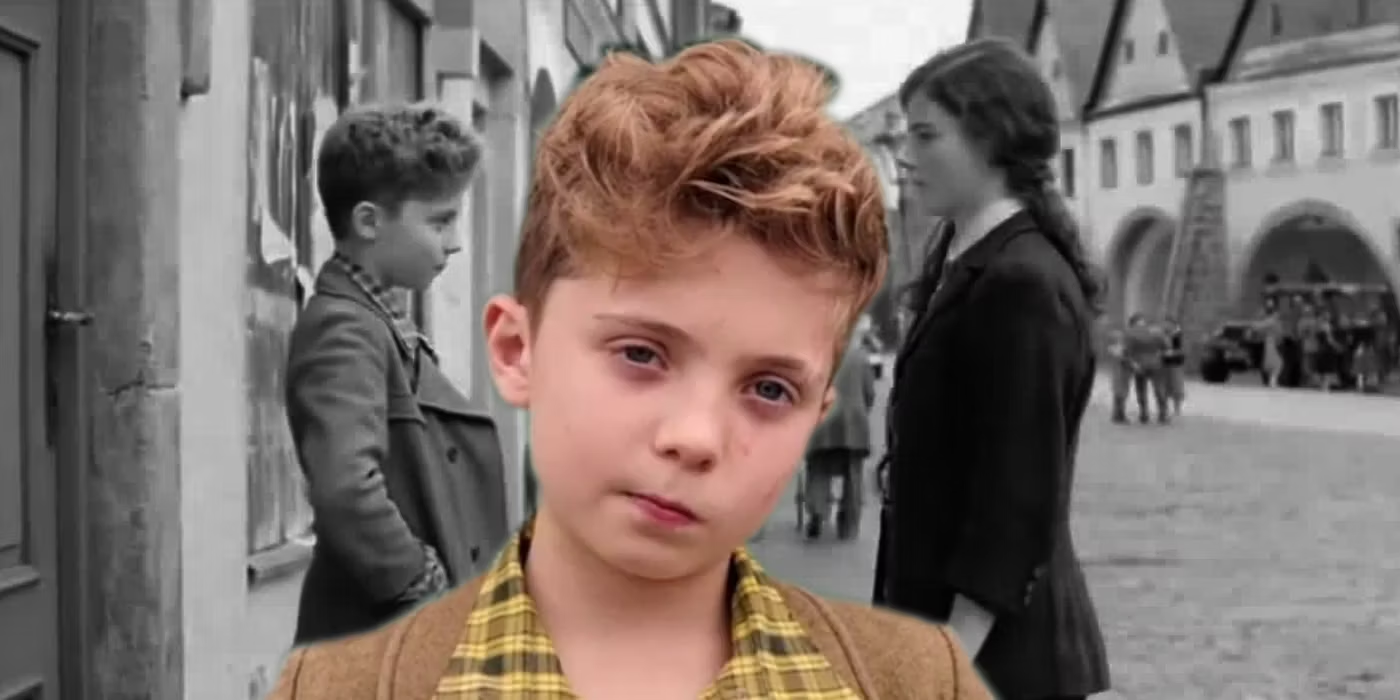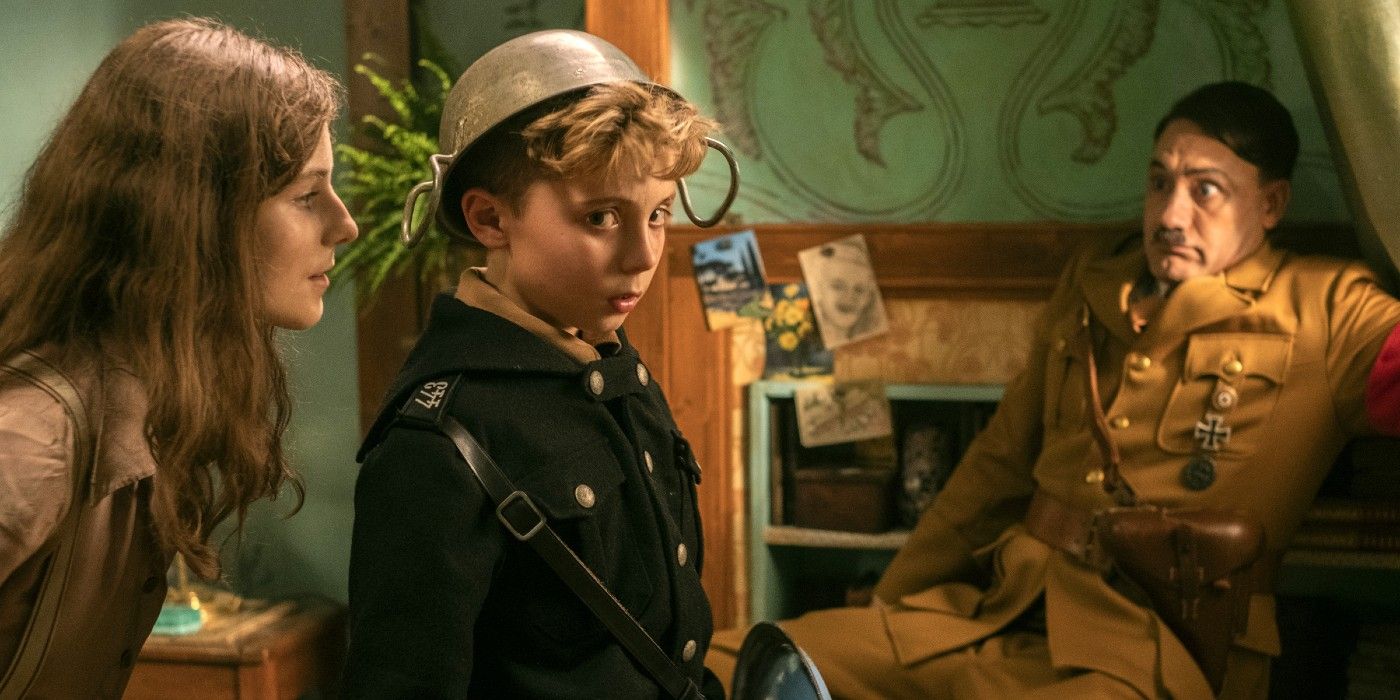Why Jojo Rabbit Lied To Elsa About The War Ending
As Taika Waititi’s WWII film winds to a close, Jojo Rabbit witnesses Germany’s defeat — but initially chooses to lie about it to Elsa. Here’s why.
You Are Reading :Why Jojo Rabbit Lied To Elsa About The War Ending

The threat of World War II hangs over Jojo Rabbit’s idiosyncratic coming-of-age tale, but when the war finally comes to an end, Jojo hesitates to tell Elsa. Based extremely loosely on the book Caging Skies by Christine Leunens, Taika Waititi’s Jojo Rabbit follows the titular Johannes Betzler, a German boy whose fervent participation in the Hitler Youth is challenged when he discovers the young Jewish woman that his mother has been hiding in the walls of their house.
While still bringing the absurd and surreal stylings of Waititi’s previous works, Jojo Rabbit does not shy away from the weight of its subject matter. All of the relatively small central cast are negatively affected, in one way or another, by the Nazi regime, even those directly participating in it, like the characters of Sam Rockwell and Rebel Wilson. However, the directness with which the film presents the troubles of each individual character varies greatly, and this contrast allows for some of Jojo Rabbit’s most poignant moments.
Near the end of the film, after the death of his mother, Jojo witnesses the Allies take his city. Along with the news of Hitler’s suicide, this signals the end of the war. But when he returns to Elsa, he initially lies and tells her that Germany was victorious. This is in the hope that she will be forced to stay with him, knowing as he does that she was only ever there because she needed to hide from the Nazis. Having lost his entire immediate family and just about everyone he knows (short of Yorki), his friendship with Elsa is the last meaningful relationship that Jojo has. The trouble is that their bond is still very new and untested, so even though the characters clearly care very deeply for one another by this point, he is loath to change the power dynamic, especially because he still believes that her fiancé Nathan is alive and that she will leave in search of him. Ultimately, the kind heart that earned him his nickname prevails over these bad impulses, and Jojo leads Elsa out into her freedom.

Utilizing an effectively cheeky approach to Nazi satire, much of Jojo Rabbit is about how Jojo’s innocence leads him to follow the hateful rhetoric of his government, when in reality he only truly wants, as Elsa points out, “to be part of a club.” However, his final lie seems so especially sinister because it is a choice that Jojo inarguably makes as an individual, with no sort of explicit propagandistic precedent. This illustrates the danger of how a greater social mentality of paranoid fascism can reshape people’s thought processes, leading them to take similarly harmful actions even when they believe themselves to be acting apart from the state.
Set against the large-scale horrors of World War II and the Holocaust, Jojo Rabbit goes to great and unorthodox lengths to show the individual, subjective experience of its protagonist, not least of which is the inclusion of Taika Waititi playing a buffoonish imaginary Hitler. But, beyond comedy, identifying the audience so closely with Jojo’s perspective makes the dark potential of his brief but significant lie truly frightening, because he has become markedly wiser and yet is still nearly willing to disregard his newly redefined notions of good and evil. Thankfully, the audience’s empathy pays off handsomely when Jojo finally overcomes the last lingering influences of his Nazi upbringing in wonderfully Waititian fashion: by kicking Hitler out of a window.
Link Source : https://screenrant.com/jojo-rabbit-elsa-lie-war-end-reason-explained/
